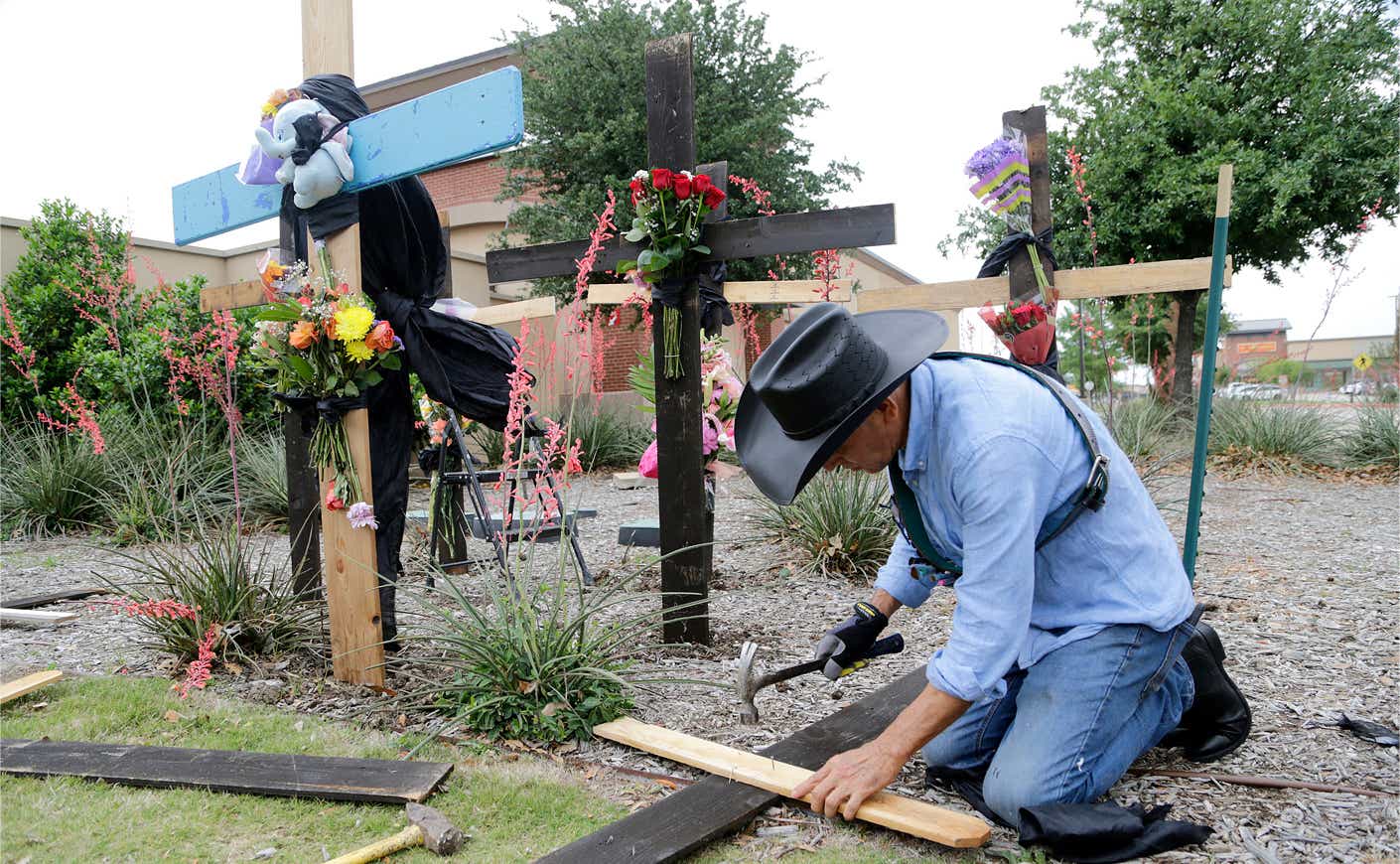The day after a gunman opened fire at a crowded outlet mall in Allen, Texas, slaughtering at least eight people, the state’s governor, Greg Abbott, appeared on Fox News to repeat a popular conservative talking point about the genesis of mass shootings. The problem, as they view it, is not that in many states it’s absurdly easy to obtain a weapon engineered for mass death, or that in much of the country you can buy a gun before you can legally drink. What’s to blame for our epidemic of gun violence aren’t the guns — but mental illness.
“People want a quick solution. The long-term solution here is to address the mental health issue,” Abbott said on Sunday. The claim was repeated by Rep. Keith Self, a congressman representing Allen, who faulted the country’s lack of “mental health institutions.”
Rolling Stone reported that the alleged shooter, 33-year-old Mauricio Garcia, was discharged from the military in 2008 due to “mental health concerns,” yet from 2016-2020 he worked as a security guard, where he received firearms training.
While access to mental healthcare in the U.S. is a problem, blaming it for mass shootings ignores the research and the guidance provided by public health experts. Studies show that what’s at the root of this flurry of mass shootings isn’t inadequate mental healthcare, but the fact that our country’s awash in firearms. As one witness to the carnage in Allen, Texas put it: “Mental health didn’t fire that gun. Those people were killed with bullets.”
How stricter gun laws prevent shooting deaths
Studies show that restricting gun access does move the needle when it comes to limiting gun violence. A 2019 paper from BMJ concluded that mass shootings were far more likely to occur in states with looser firearm laws than in those with stricter regulations. Epidemiologists at Columbia University used Federal Bureau of Investigation data to track mass shootings from 1998 to 2015, and the Traveler’s Guide to the Firearm Laws of the Fifty States, an index promoted by the National Rifle Association which grades states on a scale of zero (completely restrictive) to 100 (completely permissive).
They found that the states with the highest scores, and therefore, the most lax gun laws — Vermont, South Carolina, Louisiana, and Arizona — also saw the most mass shootings. (Florida, which has witnessed some of the most devastating recent shootings, wasn’t included because it’s the only state that doesn’t participate in the FBI’s Uniform Crime Reporting program.)
Abbott and other Republicans have been quick to point out that two of the most deadly shootings this year unfolded in California, which has some of the toughest gun laws in the U.S. In January, 11 people were gunned down in Monterey Park and just days later seven others were murdered in Half Moon Bay. Experts say that there are just too many guns in America to completely prevent tragedies like these from occurring, but California’s strict stance on gun control is really making a difference. The state has one of the lowest gun death rates in the country, at just 9 per 100,000 people — about 39 percent lower than the national average, according to the Centers for Disease Control. (Texas’s death rate, for comparison, is 15.6 per 100,000.)
Is there a link between mental health and mass shootings?
It’s easy to assume that the perpetrator of a senseless massacre, like the one that occurred Saturday in Allen, must be coping with a serious mental health issue. But that’s not always the case. Only about 5 percent of mass shootings are related to severe mental illness, like psychosis, according to a Columbia University review. More shooters, about 25 percent, have been diagnosed with depression or some other mental disorder. But that still leaves the majority of assailants who, driven simply by feelings of rage or isolation, have committed atrocious acts of violence thanks to their easy access to firearms.
“Most of the research shows that people with mental illness are actually less likely than the general population to go on to shoot somebody else,” Dr. Jonathan Metzl, a psychiatrist and director of the Center for Medicine, Health, and Society, tells PBS. “To be honest, it’s quite frustrating as a psychiatrist to have this kind of false narrative be perpetuated because it’s a distraction from the story we should be telling.”









